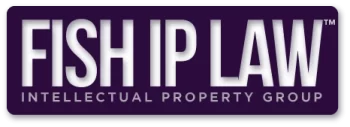The Copyright Office lists these works which are commonly registered: apps, blogs, computer programs, databases, mask works, screen displays, spreadsheets, video games, virtual reality environments, and websites.
See this page.
The answer to this is how copyright has evolved to cover software. When a consumer buys a copy of a song, for example through a physical CD, he owns the CD, not the intellectual property represented by the CD. This principle is called first sale, and it allows the purchaser of the CD to lend it to others, or resell that one CD. But with software, owners were lending their copies to others, who had to install the copy on their computers in order for it to work, which they would then lend to others, rinse and repeat. This of course meant that the software developer was only getting paid once while the software was installed multiple times.
Software developers took the position that buyers were not purchasing copies to own, but entering into a copyright license agreement, in essence saying the first sale doctrine wasn’t applicable to software. Software sellers began to use the “shrink-wrap license” in the terms and conditions. Of course, purchasers weren’t aware of the terms and conditions prior to buying the software, since they were contained in fine print inside the packaging.
As distribution moved more to the internet, the shrink-wrap license became the click-through license, with buyers expressing their acceptance by clicking on an icon. But there has been tension between purchase and license models for software.
Generally, yes. The source code for your computer program may be protected copyright. Each version of a computer program comprising new, copyrightable material is considered a separate work requiring a new copyright application. If, however, your program is unpublished, you may be able to register multiple versions of the same program by submitting them together as an “unpublished collection.”
Except in limited circumstances, a registration for source code does not cover earlier versions of the work or pre-existing material within the source code. Examples of material that cannot be included in your registration include source code owned by a third party or source code that is within the public domain.
For programs written in Javascript or other script languages, the script is considered by the Copyright Office to be equivalent to source code and is generally registrable.
You can still obtain a copyright registration for source code containing trade secret material using special procedures outlined by the Copyright Office, which are designed to protect trade secrets in software code.
HTML is not source code, and therefore the Copyright Office will not register HTML as a computer program. HTML is often generated by automated website design software, and in such cases cannot be registered. HTML can be registered as a literary work if it was created by a human being, and so long as it contains sufficient creative authorship to be considered copyrightable material.
The deposit requirements for registering HTML are very specific, and there are specific limitations to what the registration in the HTML will cover. For instance, a registration in HTML will not cover audio, visual, or audiovisual content that may appear on a website and is not perceptible in the HTML.
